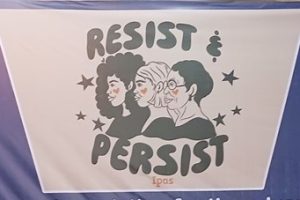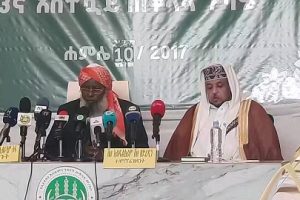
“No one is born hating another person because of the color of his skin, or his background, or his religion. People must learn to hate, and if they can learn to hate, then they can be taught to love, for love comes more naturally to the human heart than its opposite.” Nelson Mandela.
Peace is the most imprint aspect of life. It is priceless. Violence on the other hand is an interaction of factors, implies conscious intentionality of detriment.
Several scholars are excreting their energy and knowledge to get the reason behind this violence loving
attitude. Lately, a book on Peace Education for Youth Violence Prevention was tabled for discussion and The Ethiopian Herald had a chance to attend the Book talk event at ECA (Economic Commission for Africa) and had interviewed the author and other scholars on the issue of Peace Education.
In her book, entitled “Peace Education for Youth Violence Prevention in Africa: Holistic and Integrated Approach. Case Study of Ethiopian Schools.” Addis Ababa University Institute for Peace and Security Studies, Assistant Professor in Peace and Conflict Studies , Dr. Tigist Yeshiwas Engdaw, indicated that peace education is the way towards sustainable peace building process.
Peace education is the process of promoting knowledge, skills, attitude and values needed to bring about behaviour change that will enable children, youth and adults to prevent conflict and violence. Both overt and structural, to resolve conflict peacefully, and to create conditions conducive to peace, weather at intrapersonal, interpersonal, intergroup, national or international level.
Peace education skills such as critical thinking and reasoning should be integrated as part of our educational system and students should develop a good attitude and behavior towards each other despite their race, ethnicity, religion or political differences.
Peace education is all about working on the attitude, the mind set and the behavior of individuals to create a conducive and safe place to live. The author stressed that peace education should be given formally in the school system from Kindergarten up to University level in Ethiopia and beyond.
“Informally, all sects of the society has to know the art of peace through TV, radio, newspaper, literature, drama, poetries and now it’s the time of technology using modern technology through the internet targeting mainly the youth which comprises of more than 50% the population is very paramount. The skill, attitude, behaviour, mind-set of the society at large has to be shaped to uphold peace.”
Peace education is very important in creating peaceful society and environment. Peace education is the way for transformation and a sustainable peace building.
Peace education is interdisciplinary and overlaps with educational initiatives such as disarmament, human rights, development plans, citizenship, gender awareness, civics and ethics, international law and environment considerations.
According to the author, the root cause of violence is broader. Social, economic and political factors have their own contribution towards violence. In this regard, the issue needs bigger analysis and holistic approach. Starting from home and the issue of parenting, school and its environs and at the community level violent cultural practices have their own contributions for the root causes. While appreciating several indigenous cultures in Ethiopia that promote peace we should also combat violent cultures that stir peace and stability.
There is structural violence, cultural violence and direct violence within our society. Within direct violence there is physical and verbal violence. Thus, the issue needs broader analysis and deeper intervention, she added.
Dr. Tigist said, peace is a state of mind where people are satisfied and confidence and hope exit. It is human value reflecting conditions where respect for human rights, justice, equity, are realized, where diversity exists and conflicts are resolved in a nonviolent and democratic ways.
Peace as the absence of war (negative peace), peace as the balance of forces in the international system, peace as positive peace (no structural violence), feminist peace at macro and micro levels, holistic Gaia-peace (peace with nature and environment) and holistic inner and outer peace on a personal level are there are six points to define the concept of peace.
When we deduct one of this variables the value of peace will be threatened. The process to sustainable peace building could be very challenging and problematic.
On his part, in exclusive interview with The Ethiopian Herald, United Nations Economic Commission for Africa, Communication Officer, Ernest Chicho, said peace is the most valuable and priceless “commodity” we have. If we don’t appreciate it and give proper care for it, the reward is violence and chaos.
He said, publication like this should be encouraged. People who engage in this kind of research will add value in all peace building process. Everyone needs peaceful and safe environment. In this respect researching the root causes of violence should be examined.
He said, the issue of peace education is not an agenda for a particular nation. It serves the whole world.
Commendation of peace from Ethiopia can also be applicable for America or in any other country.
Asked causes of violence and bulling in schools Ernest Chicho, said, there is no concrete answer for that. Seeing the complex nature of human kind we can not generalize that either economic or social reasons are particular root causes for violence at school.
According to him, students from both poor and rich family violent differently. For example, student from the very rich family would act arrogantly. On the other hand, students from poor family would get complex and display defensive aggression.
Peace is shared responsibility. If we need safe and peaceful Africa we need to discharge our responsibility at home then at school and very corner. In shaping the behavior of students the role of families is vital. Then, teachers and other sects of the society have shared responsibility.
Addis Ababa University Department of Geography and Environmental Studies, Lecturer, Dr. Yohannes GebreMichael on his part said, magnitude of violence in schools is increasing. In this regard, the government, the community and other institutions that deals with students has to deal with the issue with sense of urgency.
He said, peace education is the key to address the problem in a holistic and integrated approach.
The Ethiopian Herald April 28/ 2011 BY LEULSEGED WORKU





